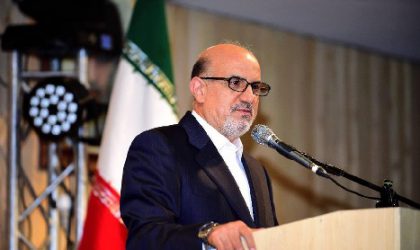Behzad Mohammadi, the CEO of NPC, announced the addition of 16 new products to the petrochemical product portfolio on the occasion of the celebration of the petrochemical day held at the Iran International Conference Centre aiming to further diversify the industry’s products.
Pointing that Iran’s 56 petrochemical complexes are currently receiving 33 million tons of feed-stock that is equal to 650.000 barrels of crude oil per day, he added: “In the year 1400 (2021) The total number of the country’s PC complexes will increase to 83 complexes that annually will receive 62 million tons of feed-stock which is equal to 1.400.000 of crude oil per day”.
By referring to the point that the total volume of investment in the petrochemical industry will rise from today’s $ 53 billion to $ 70 billion per year and will reach to about $ 94 billion in the year 1404 (2025), he continued: Increasing petrochemical complexes to 109 complexes and the feed intake which will reach annually to 74 million tons that is equal to 1.700.000 barrel of crude oil per day, indicates the passage of selling raw crude oil periods.
He also pointed out that the production capacity of the petrochemical products by the end of year 1400 and the second leap of the industry will reach to more than 100 million tons, and in the third leap, by the end of the year 1404, will reach to 133 million tonnes per year. He insisted that: “Considering the plans and plannings, 16 important petrochemical products will be added to the Iranian PC baskets, and it is for the first time that such an important addition to the petrochemical products just in one year is happening here in this country”.
Mohammadi said: For deprivation and job creation in West Islamabad, the National Petrochemical Company, has a plan to construct a PP production PC from the natural gas feed. This complex is comprising a methanol production unit having 660.000 tons capacity, a PVM unit of 120,000 tons and a 120.000 tons PP unit by cooperation and investment of the private sector.
One of the most important ways to resuscitate petrochemical companies during sanctions and to support downstream industries is to increase the variety of products in the country’s petrochemical basket.
Tough the sanctions, has resulted in the inability to access up-to-date technologies and caused consequently the country’s petrochemical industries to lag behind in modernization, and this in turn makes the competitive impossible and very hard for quality markets in the global level, both in quality and the finished price view point.












